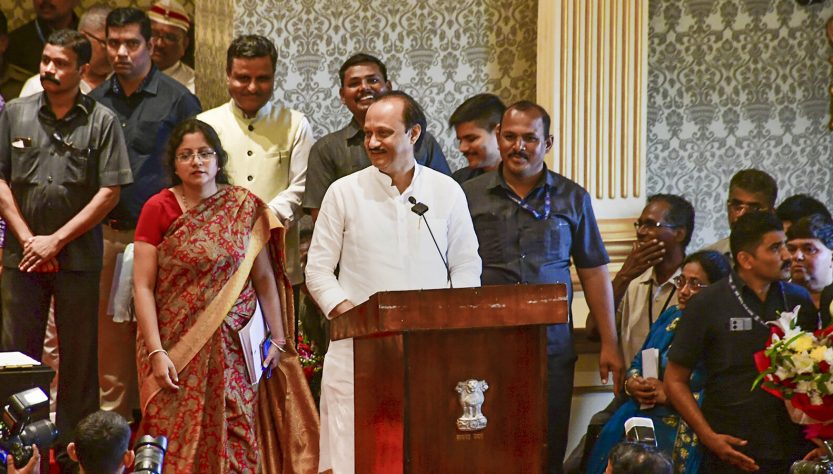Birds and bees might not do it, but when it comes to procrastination, we humans have it down cold. Many people even elevate procrastination — known as “a hardening of the oughteries” — into an art form. As Mark Twain put it, “never put off till tomorrow, what you can do the day after tomorrow.”
According to researchers, almost everyone procrastinates, and up to 20% of us do so chronically. Unfortunately, putting things off — besides making us less productive — also stresses people out. “The more people procrastinate, the less happy, the less healthy, and the less wealthy they are,” notes Piers Steel, an expert in motivational problems and associate professor of human resources and organizational dynamics at the
Procrastination — “to voluntarily delay an intended course of action despite expecting to be worse-off for the delay,” he says — always has repercussions. “It takes everyone’s game down a notch, at least, and some people much more than that.” Yet avoiding procrastination is almost impossible. “It’s who we are: we have a mindset that’s best suited for a hunting-and-gathering society.” Thus we’re easily sidetracked by BlackBerries, Internet surfing, IM, YouTube, foosball, and other modern workplace distractions.
Technology Drives Productivity, Procrastination
Compounding the problem, workloads are increasing, which creates a greater need for us to maintain peak productivity. Indeed, according to a 2006 survey by Accenture, nearly two-thirds of full-time employees reported their workload increased during the previous 12 to 24 months, due to insufficient staffing levels, strategic changes, or reorganizations. Of course broadly speaking, economists credit IT with helping boost workers’ productivity to record levels, which has allowed companies to accomplish more while employing fewer people.
Yet with heavier workloads, more long-term tasks to manage, and greater reliance on technology, employees face more distractions and thus tend to procrastinate more frequently. Tech workers battle even more interruptions than the average employee, given their especially heavy reliance on — if not outright fetish for — technology. “That’s the weird thing about progress,” notes Steel. “Not only does it increase our productivity, but it also speeds the delivery of our vices. So in one way, it makes work easier and harder to do at the same time.”
How to Manage Procrastination
So how can techies avoid procrastinating? “We need to get this mismatched person and environment to somehow fit together,” notes Steel. Accordingly, start by pursuing these 10 changes:
- Catalog distractions. According to a 2005 study from Basex, distractions consume 28% of a knowledge worker’s day. Accordingly, attempt to minimize workspace interruptions: let calls go to voicemail, hang a “Do Not Disturb: Coding Deadline” sign outside your cubicle, and consider noise-canceling headphones.
- Back away from the e-mail. Of all corporate distractions, e-mail arguably zaps the most productivity. “If you want to be 10–15% more productive, and this means probably an extra 30 days of work a year, turn off the automatic indicator on your e-mail,” says Steel. In other words, “lose the ding, and lose the [notification] icon too.”
- Defuse bad habits. Make bad habits — your IM addiction, or checking MySpace nonstop — harder to indulge by deleting quick-launch buttons and desktop links to related applications. “As soon as you have an impulse, even if it’s fleeting, you’ll act on it, if it’s available in those few seconds,” notes Steel.
- Banish the Dew. The predominant reason people put off tasks: they’re too tired. So get sufficient sleep and exercise, eat right, and lay off the Mountain Dew and Red Bull. Most of all, pursue unpleasant tasks when energy levels are high; you’ll accomplish them more easily and quickly.
- Chunk it up. “A lot of tasks have something called motivational surface tension,” notes Steel, meaning getting started is the hard part. So break a task into small enough pieces that you can visualize each one’s outcome, then spend 10 minutes on one chunk. After 10 minutes, continuing for another 10 minutes — and so on — probably seems like no bother.
- Procrastinate by working. “When I find myself procrastinating,” says Steel, “I allow myself to procrastinate as long as I do another piece of work I was procrastinating on.” His inspiration: that unrivaled procrastinator, the college student. “I caught onto this when I found out a lot of students were cleaning the stove the night before an exam.”
- Build good habits. Psychologists say routines help us avoid procrastinating. To build good habits, start simply by breaking tasks into smaller chunks. “In the long term, as you get better at things, you can start chunking upwards, the tasks don’t have to be so small, and that’s where the routine comes in,” says Steel.
- Don’t play Spock. Remember, many human tendencies are incredibly hard-wired. “We’re not Spock from the Planet Vulcan, we’re quasi-rational,” he says, “and it’s best to work with who you are, rather than who you want to be.” In other words, strive for changes relative to your existing procrastination habits, instead of some abstract ideal.
- Separate work and play: Working makes you work more; playing makes you play more. Yet how can techies — for whom work often resembles play — strike a balance? Start by hiding the work laptop when you’re not at work. According to Steel, “it’s almost worth it for professionals to have two computers: one for surfing and video games, and one for working.”
- Think you can. While it might sound trite, overcoming procrastination requires positive thinking. “The more self-doubt you have, the lower your motivation,” he says. “As a general rule, it’s best to be your own number-one fan, and to err on the side of believing you can do it
Mathew Schwartz is a freelance business and technology journalist based in



No comments:
Post a Comment